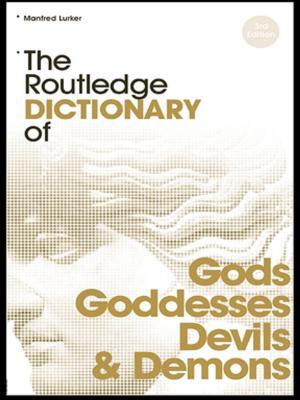Acts of Modernity
The Historical Novel and Effective Communication, 1814–1901
Nonfiction, History, Modern, 19th Century, Fiction & Literature, Literary Theory & Criticism, Books & Reading| Author: | David Buchanan | ISBN: | 9781317029045 |
| Publisher: | Taylor and Francis | Publication: | September 1, 2017 |
| Imprint: | Routledge | Language: | English |
| Author: | David Buchanan |
| ISBN: | 9781317029045 |
| Publisher: | Taylor and Francis |
| Publication: | September 1, 2017 |
| Imprint: | Routledge |
| Language: | English |
In Acts of Modernity, David Buchanan reads nineteenth-century historical novels from Scotland, America, France, and Canada as instances of modern discourse reflective of community concerns and methods that were transatlantic in scope. Following on revolutionary events at home and abroad, the unique combination of history and romance initiated by Walter Scott’s Waverley (1814) furthered interest in the transition to and depiction of the nation-state. Established and lesser-known novelists reinterpreted the genre to describe the impact of modernization and to propose coping mechanisms, according to interests and circumstances. Besides analysis of the chronotopic representation of modernity within and between national contexts, Buchanan considers how remediation enabled diverse communities to encounter popular historical novels in upmarket and downmarket forms over the course of the century. He pays attention to the way communication practices are embedded within and constitutive of the social lives of readers, and more specifically, to how cultural producers adapted the historical novel to dynamic communication situations. In these ways, Acts of Modernity investigates how the historical novel was repeatedly reinvented to effectively communicate the consequences of modernity as problem-solutions of relevance to people on both sides of the Atlantic.
In Acts of Modernity, David Buchanan reads nineteenth-century historical novels from Scotland, America, France, and Canada as instances of modern discourse reflective of community concerns and methods that were transatlantic in scope. Following on revolutionary events at home and abroad, the unique combination of history and romance initiated by Walter Scott’s Waverley (1814) furthered interest in the transition to and depiction of the nation-state. Established and lesser-known novelists reinterpreted the genre to describe the impact of modernization and to propose coping mechanisms, according to interests and circumstances. Besides analysis of the chronotopic representation of modernity within and between national contexts, Buchanan considers how remediation enabled diverse communities to encounter popular historical novels in upmarket and downmarket forms over the course of the century. He pays attention to the way communication practices are embedded within and constitutive of the social lives of readers, and more specifically, to how cultural producers adapted the historical novel to dynamic communication situations. In these ways, Acts of Modernity investigates how the historical novel was repeatedly reinvented to effectively communicate the consequences of modernity as problem-solutions of relevance to people on both sides of the Atlantic.















